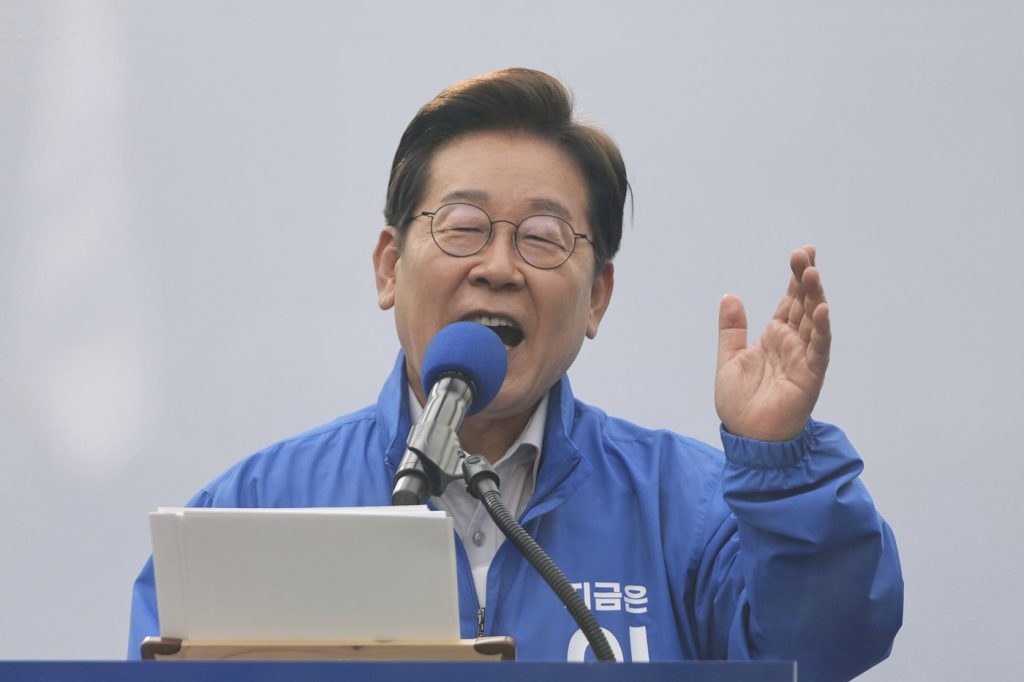SEOUL, South Korea (AP) — South Korea is poised to elect a new president this week following months of political upheaval triggered by the unexpected ousting of conservative president Yoon Suk Yeol, who was removed from office due to a controversial and brief imposition of martial law.
Surveys indicate that liberal candidate Lee Jae-myung is the frontrunner in Tuesday's snap election, bolstered by widespread public discontent following Yoon's martial law debacle in December. Main conservative candidate Kim Moon Soo is striving for a last-minute victory but has struggled to close the gap with Lee, partly due to his hesitance to openly criticize Yoon.
The president elected will be inaugurated on Wednesday without the usual two-month transition period, inheriting the urgent responsibilities of mending the deep national division caused by Yoon's actions, as well as addressing challenges posed by U.S. President Donald Trump's America-first policy and North Korea's advancing nuclear program.
Lee, representing the dominant liberal Democratic Party, enjoys a solid lead in recent polls, with 46% to 49% of surveyed voters supporting him, compared to Kim’s 35% to 37%. Previously, Lee narrowly lost the 2022 election to Yoon and played a significant role in overturning Yoon’s martial law decree and calling for impeachment, which was ultimately confirmed by the Constitutional Court in April.
Lee’s direct commentary on South Korea's conservative establishment, along with demands for accountability from those involved in the martial law enactment, has incited concerns among his adversaries that his presidency could further increase national polarization. In contrast, Kim, who was a former labor minister under Yoon, faces challenges in restoring the public's confidence in the People Power Party while being careful not to alienate moderate voters.
Additionally, four other candidates are participating in the presidential race, including Lee Jun-seok from the smaller conservative New Reform Party, who has dismissed Kim's attempts to unify the conservative vote.
The election campaigning has seen a shift toward personal attacks rather than substantive policy discussions. During a recent televised debate, accusations flew as Lee accused Kim of being "Yoon Suk Yeol's avatar," while Kim portrayed Lee as a "harbinger of monster politics and dictatorship." The discourse has strayed into offensive territory, exemplified by Lee Jun-seok's provocative remarks regarding Lee Jae-myung's son.
Unlike past elections, the topic of North Korea's nuclear ambitions have not been a focal issue among candidates, reflecting a shared belief in minimal immediate leverage over North Korea regarding its nuclear arsenal. Trade relations with the U.S. under Trump's aggressive tariff policies have also remained relatively undivisive.
Kim has primarily criticized Lee as a potential autocrat, while Lee has questioned Kim’s connections with Yoon. As the new government prepares to step in, it will face considerable challenges including urgency in trade negotiations with the U.S., particularly as Trump’s 90-day tariff pause approaches its expiration on July 9, potentially burdening South Korean exports with a 25% tax rate.
Lee has accused prior government officials of rushing negotiations for trivial political benefits, opposing the idea of prioritizing a quick agreement with the U.S. Meanwhile, Kim emphasizes the importance of promptly meeting Trump to resolve trade matters.
Another pressing concern will be addressing the heightened security tensions surrounding North Korea’s nuclear advancements, particularly in light of Pyongyang’s alignment with Russia's invasion of Ukraine.
Lee has suggested a willingness to improve relations with North Korea, though he acknowledges forthcoming diplomatic engagements may not materialize swiftly, asserting his commitment to support Trump's initiatives aimed at renewing nuclear negotiations. In contrast, Kim Moon Soo has pledged to enhance South Korea's military prowess and seek stabilizing U.S. support, aligning with an approach that mirrors Yoon's hardline stance.
Ultimately, the next South Korean president will need to navigate a polarized public reflecting years of civil unrest over Yoon's administration, with Lee indicating a desire for unity and an aversion to vengeance. Nonetheless, skepticism lingers regarding his intentions towards Yoon’s martial law enforcement amidst ongoing legal repercussions facing Yoon.
These legal battles are expected to cast a long shadow over Seoul's future government, as Yoon's ongoing trial on serious criminal charges—potentially resulting in death or life imprisonment—exemplifies the precarious state of South Korean politics.











